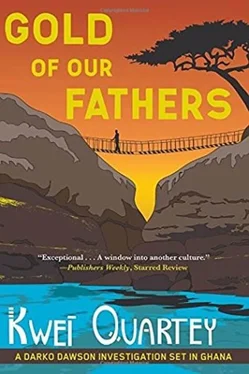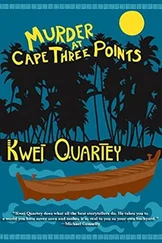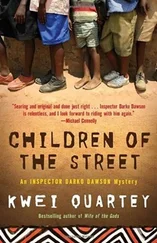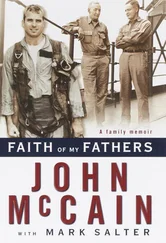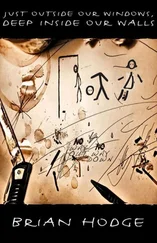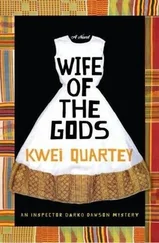Dawson glanced around and saw that for the moment, no one in the room was senior to him in rank. “Jess,” he said, quietly.
“Yes, sir,” the sergeant said, turning.
Dawson transmitted the message with his eyes. It’s enough. “Have you completed the paperwork on the suspect?”
“Almost, sir.”
“Okay, then proceed.”
The sergeant took his seat and the other officers dispersed. It would have been poor form to chastise an officer in front of a prisoner, but Dawson hadn’t wanted the beatings to continue. Vigilante justice was common in Ghana, But as police officers, let’s be at least a little above it, he thought. There was one hopeful sign these days: compared to fifteen years ago when Dawson had joined the force, the quality of new police recruits had improved, with many of them holding bachelor’s degrees. Perhaps their approach would be more intellectual and less physical.
“Chief Superintendent Oppong is in, by the way,” Chikata said, referring to the man who had taken over from Theo Lartey. Dawson detected an over-casual inflection in the inspector’s tone. He was going to miss the uncle who had always been like a father to him, but he was being brave about it.
It was perhaps this separation from Lartey that was prompting Chikata to stray in other directions, which concerned Dawson a good deal because he did not want to lose his partner. Chikata had developed an interest in the Panthers Unit, an elite strike force based at CID Central Headquarters. Trained in the use of firearms and tactical maneuvers, the Panthers’ officers were the very best: fit, fast, and fierce. Chikata was all that, and that’s why Dawson feared he would one day be snatched away.
“You’ve met the chief super?” Dawson asked.
“Yes,” Chikata said, without much enthusiasm. “This morning. He told me to ask you to go up to his office when you get in.”
“I will,” Dawson said. “What is he like?”
Chikata shrugged. “He’s okay.”
Dawson smiled slightly at the tepid endorsement. “All right,” he said, standing. “I’ll go now.”
He went one flight up to the chief superintendent’s office. He couldn’t count the number of times over the years that he had made this trek to face Theophilus Lartey, almost invariably a firing squad experience. It felt strange to be going to someone new. The brass nameplate on the solid door now read chief superintendent joseph oppong . Dawson knocked and heard the faint “come in” from the other side. As he entered, Dawson immediately took account of the scrupulous tidiness of Oppong’s desk, a transformation from Lartey’s chaos. The man in the leather executive chair was different too. He was tall and bone thin, whereas Lartey had been diminutive.
Oppong looked up over a pair of half spectacles. He was probably in his midfifties, but his hair was a premature and shocking white. He wore an impeccable dark suit and tie.
In a condensed form of a salute for non-uniformed officers, Dawson put his hands at his side and braced.
“Good morning, Dawson,” Oppong said neutrally. He gestured at the chair on the other side of the desk. “Have a seat.”
Dawson sat. He didn’t know Oppong at all, since the chief superintendent had been stationed outside Accra at different divisional headquarters of the GPS for at least a decade. Dawson’s first impression was that he was methodical and quiet-another contrast to Lartey. Anticipating a lecture about what was expected of him, Dawson waited while the chief super flipped the pages of a large notebook in front of him.
“I’ve just been reading through the hand-over notes from my predecessor, now Assistant Commissioner Lartey,” Oppong said, looking over his glasses again. “I have reviewed your file. You’ve shown good work-apart from some growing pains in the beginning.”
That comment, delivered in a voice that sounded to Dawson like a 60-hertz electrical hum, could have been a wry joke, but Oppong cracked not even to trace of a smile. He was referring, no doubt, to Dawson’s anger management difficulties years ago-an explosive temper that had slowly settled down since.
Oppong was studying a sheet of paper headed with the GPS insignia. “Were you made aware of your impending transfer to Obuasi?”
Dawson’s eyebrows shot up. “Transfer to Obuasi, sir? What transfer?”
Oppong read from the document. “Following the untimely death of Chief Inspector Pascal Addae, supervising crime officer at Obuasi Divisional Headquarters, his post is to be filled for a period of at least one year by Chief Inspector Darko Dawson of CID Headquarters, Accra.”
One year ? Dawson fell back in his chair, dumbfounded. Oppong looked up at him. “Evidently this comes to you as a surprise.”
“No one told me,” Dawson said, hearing his voice sharpen. “Was this a decision by ACP Lartey?”
“I don’t know whose decision it was,” Oppong said kindly. “All I know is that the notification is signed by him. Since he is my senior officer, it is my duty to implement it, not to question it.”
Dawson was furious. This was a dirty trick by Lartey-a parting shot, a last laugh even as he left his post. He knew all about Dawson’s family, the trials of Hosiah’s surgery and nursing him back to emotional and physical health, and yet he had still done this.
“Dawson?”
He startled back to the moment. “Yes, sir.”
“You need to get to Obuasi as quickly as possible,” Oppong said. “Seeing as how you are taken by surprise by this development, I will give you a grace period of two weeks, so that you can get your affairs together. Are you planning to move with your family?”
Dawson’s impressions of the chief superintendent changed. Seemingly aloof at first, Oppong appeared to have the heart that Lartey did not.
“I’m not sure, sir,” Dawson said despondently. “I don’t know. What happened to Chief Inspector Addae?”
“I think it was some kind of stroke,” Oppong said.
Dawson felt guilty that he wasn’t feeling as much sympathy as he should have. “Who will take my place here at headquarters?”
“Chikata will report directly to me on any cases.”
Dawson nodded. At least that would be good. Chikata could gain added experience and prestige that way.
“Well,” Oppong said, folding his long fingers in front of him. “That’s all for now.”
“Thank you, sir.”
Dawson didn’t remember getting up and leaving the room. He was in a daze.
The quiet Myohaung Street at the rear of the CID premises, named after a place in Myanmar in recognition of Ghana’s contribution to the WWII defeat of the Japanese in Burma, was often Dawson’s place to think and brood. He thrust his hands in his pockets and walked in the shade of the trees that lined the street, passing embassy residences and expensive gated communities.
So much to think about. He tried to clear his head and work through it methodically. Obuasi. About 160 miles away in the southern part of the Ashanti Region, it was one of the major gold-mining towns in Ghana and home to the huge multinational AngloGold Ashanti. Dawson thought the population might be around a couple hundred thousand people. It and other areas in the region had been in the news of late because of illegal gold mining by not just hundreds, but thousands of Chinese who had flooded into Ghana from a certain region of China-Dawson couldn’t remember the name at the moment-and succeeded in laying waste large tracts of fertile land as they dug feverishly for alluvial gold.
Dawson couldn’t possibly be away from Christine, Sly, and Hosiah for that long, could he? No, they would have to come with him to Obuasi. But that meant finding the boys new schools and Christine a new job. He winced at that. Christine had just been promoted to assistant headmistress. How could she be so prematurely uprooted now from a post that was providing her experience and prestige, and bringing in a little more income? Maybe the family should stay in Accra and Dawson could visit from Obuasi as often as possible? But he knew what that meant in reality. When a case becomes very busy, there is barely time to get away. He would be missing his family for intolerable weeks on end.
Читать дальше
